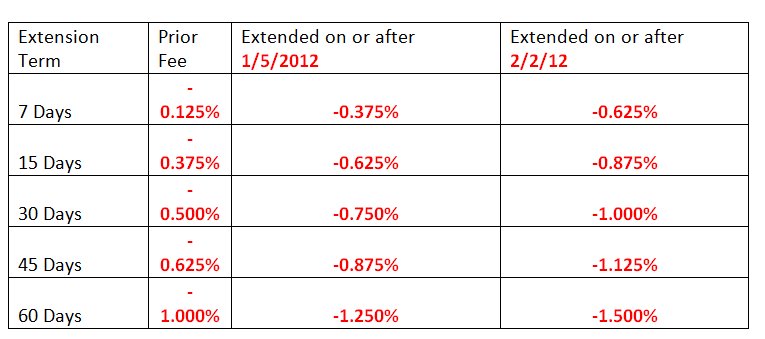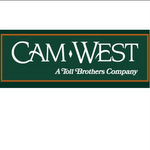Even if you are a First Time Homebuyer, you should be keenly aware of the cost of selling a home. Often people think they can just sell their home if they pick the wrong one, or if they get a new job out of town. But the cost of selling is usually many Xs the cost of buying.
It is good to be mindful of the cost of leaving…the home you are buying…before you buy one.
The Closing Costs/Expenses associated with Selling a home are fairly simple, but in $ much more costly than a Buyer’s Closing Costs. Also a buyer can pay ALL of their costs without “hard dollars” in most cases. A Seller is not afforded that “convenience”. Sometimes homebuyers call financing their closing costs “seller paid them”…but in reality the seller is not paying them…you are financing them in whole or in part, unless you are a cash buyer.
The three BIG costs for sellers are”
1) Paying off your existing mortgage(s) and other lienable utilities (Usually water sewer and trash) Not a “Closing Cost”, but likely the largest expense nonetheless. Be sure to add one month’s interest to your principal when estimating your payoffs, which you should do before you list your house to avoid surprises at closing.
2) Paying the Real Estate Agents, both your agent and the buyer’s agent, will be deducted on the seller side of the Closing Statement from the Sale Price and Net Proceeds.
3) State Excise Tax at the rate of 1.78% of the sold price.
RE Commissions & Excise Tax = the big bulk of true “costs” associated with selling a house. These on a combined basis usually range from 6% to 8% of the Sold Price depending on what services you use.
Note: The buyer determines what service and/or representation they will use when purchasing a home, and who will provide them with that representation/service. But the cost of the Buyer’s representation will still be deducted from the Seller’s Net Proceeds IN FULL, even if the cost is less than the Seller anticipated. Generally the rule is the Seller can negotiate the cost for the Seller Services, but any savings on the Buyer side commission goes to the Buyer…even though that commission shows and is deducted on the Seller side.
Other Seller Costs:
Owner’s Title Insurance – price dependent, but not a %. The Agent for the Seller usually orders Preliminary Title before listing the house. So you can get a quote. About $1,000 give or take? Depends on price of home within a few ranges of price. The cost doesn’t go up by each $ of price. Here’s a Title Cost Calculator but you have to sign in. Maybe a Title Rep will pop in the comments and give more info on that. I’m seeing a range from $850 to $1200, even though the price difference on the two houses is HUGE! So plan on $1,000 or so, and get a quote as soon as you pick a listing agent/service.
Seller’s “half” of the Escrow Fees – usually quoted as half…so don’t take the quote and half it again. About the same as Title Insurance, give or take, with the same method of calculation. DO NOT take the election for the $50 discount if YOU use the same place for Title and Escrow! You pick Title and let the BUYER choose escrow. (my soapbox…buyer should choose escrow!)
A couple of misc fees like notary or courier and what not. Throw $500 in misc and that should be more than enough.
Summary of Seller costs =
RE commissions for BOTH agents/services. Usually 4% to 6% +
Excise Tax 1.78% +
Title Insurance , Escrow Service and Misc – total $2,500 or so
…and paying off your mortgages and lienable utilities and any other liens needed to be cleared from the property. Usually there aren’t others, but there could be unrelated liens like Income Tax, or Judgments. That is why the Agent for the Seller runs Title before the home is listed, to avoid surprises at closing.
Add to that your prorated Real Estate Taxes for the time you live in the house since the last tax bill was paid. That varies depending on the month you close. Conversely you will get a credit from the buyer if you paid those taxes in advance.
HOME INSPECTION REPAIR COSTS – DO NOT list your house without setting aside an amount for the Home Inspection Negotiation. How much you should set aside differs from one house to the next, and your agent should be able to give you a rough estimate. It depends on the age of your roof, heater, hot water tank, etc. It does NOT depend on whether or not those things function well!
AGE! Age of item is now the issue…not merely it’s condition. I do not recommend that the seller do an inspection before listing the home. But that’s another topic.
In a nutshell…if a seller is selling a home for $400,000 and has NO mortgage to pay off, their total costs will be about $30,000 – $40,000! Lots of costs for the seller.
********
HOME BUYER CLOSING COSTS and EXPENSES
If you are paying cash for your house…the only real costs are:
Escrow Closing Fee plus some misc charges like Recording Fee. $1,000 give or take. You still have to or should get Insurance (fire insurance, etc)…but escrow will not be requiring that in order for you to close, and may not handle it for you if you are a cash buyer. You will HAVE Owner’s Title Insurance…but that is paid for by the seller.
The closing costs jump up from $1,000 CONSIDERABLY when you are using financing to purchase…and many if not most people are.
The largest cost for a Homebuyer, potentially, are the Lender Fees. That said, more and more people are electing to NOT have Lender Fees. That creates a “higher” rate…but when that higher rate is 3.875%…it doesn’t seem high. So negating the lender costs is more common during a period of low rates than it is during a period of higher rates. No good reason for that, as the increase to rate as a % is the same…just is what it is.
Lender Fees can be anywhere from almost nothing to 1.50% or so. So shopping for costs AND rate is a big job for the homebuyer.
I’ll let the lenders jump in the comments and explain that better. Often you will see lender costs of $4,500 and then a Lender Credit against those costs of $4,200 reducing the actual cost to $300. That is a means to the almost no lender cost solution. You still have to sign disclosures for the actual costs, even though the net impact will be much lower. Again…I’ll leave that to lenders to explain, I can only tell you that is what I see, but not the why of it.
You need Lender’s Title Insurance. The Seller paid for Owner’s Title, which is all you need if you pay cash for a house. But if you have financing you need to purchase Lender’s Title which is based on the Loan Amount vs the Purchase Price. About $1,000 give or take.
Home Inspection and Appraisal Fees ($450 or so) and other misc loan associated costs I include in “lender fees” above. Though if you don’t buy the house…you still have to pay the Appraiser. So Home Inspection Fee and Appraisal Fee of $1000 or so usually have to be paid even if you don’t end up closing, after those are completed.
NOTE: You may need MORE than “a home inspector” depending on the house. Sewer Scope by a different contractor…Structural Engineer Evaluation depending on the house…drain inspection if there are cement drain systems, which many have. I’m not going to run the gamut of extra inspections that may be needed, as this is a house to house issue. But DO KNOW that most Home Inspections do not do all of the inspections you may need for a particular home. It depends on the home.
Half the Escrow Fee…same as Seller…again what you are quoted IS half…so don’t half it again.
One Year Paid up Fire Insurance Policy = paid at closing. I am calling it Fire Insurance so you don’t get it confused with Owner’s Title Insurance. It covers more than fire, but in my experience if I don’t call it Fire Insurance, people do not totally “get” what I mean when I say Hazard Insurance or Homeowner’s Insurance. Fire Insurance everyone understands…even though that insurance covers more than damage from a fire.
Note: Cost of Homeowner’s/Hazard/Fire Insurance is whacky right now. Be sure to get a few quotes and make sure they are running your history of previous claims. People with previous claims on the homes they have owned in the past are paying through the nose lately. So don’t only go by the house itself…get a REAL quote and early. Usually right after the Home Inspection.
Recording Fees about $150 to $200 depending on how many loan instruments you are recording. Just throw in $500 for misc, same as the seller.
TOTAL ACTUAL COSTS FOR A HOME BUYER
Lender Fees+ Home Inspection and Appraisal Fees + Fire Insurance (one year paid in advance) + Lender’s Title Insurance + Escrow Closing Fee + Recording Fees + $500 misc. I can’t even give you a total number, as these vary greatly due to the Lender Fee issue. But let’s say it’s usually around $7,500 or so, depending on the Price of the Home. I’m only putting a number so you know it’s not a few bucks, and something you need to prepare for with your Agent before you make an offer.
Notice I said prepare for with your AGENT and not your LENDER! I know it is customary around these parts for The Lender to “do that”. But why? Really? The biggest buyer side closing cost on the HUD 1 to evaluate is the Lender’s Fees. Your agent needs to help you with that…not your lender, because you need to do that BEFORE choosing a lender, and as part of the basis for choosing a lender.
A note about Real Estate Commissions…it’s a tough issue on the buyer side because it was already negotiated with the seller and often not discussed with the buyer. MAKE your agent talk to you about what they will being paid to represent you. You must have that talk…and often you need to initiate that discussion.
CLUE: “The seller pays it” is NOT the answer to How much is your agent charging for the service to YOU. “I don’t know yet” could be the answer to the question, as what the seller is offering to pay your agent varies from one house to the next. You and YOUR agent should determine the cost…and then later compare that to what the seller is offering, so you can “settle up” if there is a difference.
FREE is NOT the answer…in fact if the agent says FREE…go find another agent and fast.
That is usually done via an Agent Credit toward closing costs and absolutely needs to be addressed at time of Offer, to avoid your losing any “excess” credits to the Agent or to the Seller of the home.
No one wants to hear that the answer to Total Buyer’s Closing Costs is “it varies greatly” depending on which agent…which lender, etc. So here are some real numbers.
On a $250,000 VA purchase, $11,500 dollars reduced to zero paid…Up Front VA funding fee financed and the balance of about $6,000 paid with seller and Agent Credits. The Seller credit is the buyer financing it. The Agent Credit = a “true” reduction of cost…kind of. 🙂
On a $400,000 house purchase with Conventional Loan $9,000 with low Lender Fees.
OK…time to talk about why that one is $9,000…as a $400,000 home with low lender fees should not COST $9,000.
PREPAIDS! Prepaids vary a LOT depending on when you close. This time of year the amount you have to pay to your lender in Real Estate Tax Impounds is HUGE because the taxes are due in April and if you close in Jan your first mortgage payment is not until March. So they have to pay 6 months of Taxes in April and will only have one payment from you to do that with. So they will collect 5 or 6 months of RE taxes from you at closing…even though they are not due until April. They may pay them in March for an early payment discount. Not sure. But the impounds for RE Taxes can be a Big Chunk of Change, for sure.
You pay your one year policy for Fire Insurance up front. You are “Pre-paying” that. The cost of that is going up, from what I can see. YOUR insurance can vary greatly from your friend’s and neighbors based on previous claims, how much jewelry or expensive artwork or very expensive furniture you have in your home. Even the value of your cars, as some mishaps that damage your car are covered, like a tree falling on it or your roof shingles blowing down on your car and scratching the paint.
OK…enough talk about costs. The Seller’s costs are many times more than the Buyer’s costs, and there are many ways to reduce the costs from the “max”.
My best advice…Do not DECIDE to buy or sell a home…until you get a real estimate of your costs to do so, in advance. You may just decide the cost isn’t worth it. 🙂



 2012 is the Year of the Water Dragon, quite a visual! While Chinese Dragons don’t necessarily breathe fire like European Dragons do, I still like the idea that the Dragon is in a Water Year. 🙂
2012 is the Year of the Water Dragon, quite a visual! While Chinese Dragons don’t necessarily breathe fire like European Dragons do, I still like the idea that the Dragon is in a Water Year. 🙂

 Before we talk about the potential future impact on Real Estate of charging up to $10.00 a day for traveling on the 520 bridge, let’s look at a few notes.
Before we talk about the potential future impact on Real Estate of charging up to $10.00 a day for traveling on the 520 bridge, let’s look at a few notes.  The CamWest logo now says “A Toll Brothers Company”. I’ve long been a huge fan of Toll Brothers since my early days in Real Estate back in Bucks County, PA.
The CamWest logo now says “A Toll Brothers Company”. I’ve long been a huge fan of Toll Brothers since my early days in Real Estate back in Bucks County, PA.